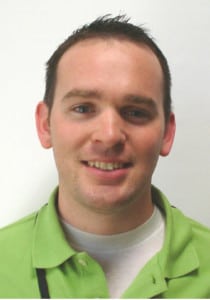Latest News
 Jordan Irving, a systems engineer at Iridium, is living his dream. As a young kid growing up in a small town in the United States, he was always fascinated by space. During his freshman year at Utah State University, he even toyed with the idea of a career in astronomy, but the love of space would eventually lead him to pursuing a career in aerospace. His education and passion would eventually take him to play a key role on the Iridium NEXT program, currently one of the most high-profile programs in our industry. Interestingly, when Irving looks back, he realizes the one thing he lacked when younger was more knowledge about the varied opportunities in the space industry.
Jordan Irving, a systems engineer at Iridium, is living his dream. As a young kid growing up in a small town in the United States, he was always fascinated by space. During his freshman year at Utah State University, he even toyed with the idea of a career in astronomy, but the love of space would eventually lead him to pursuing a career in aerospace. His education and passion would eventually take him to play a key role on the Iridium NEXT program, currently one of the most high-profile programs in our industry. Interestingly, when Irving looks back, he realizes the one thing he lacked when younger was more knowledge about the varied opportunities in the space industry.
“I think as a global society, and particularly as the space industry, we can do more to promote and contribute to [Science, Technology, Engineering and Mathematics] STEM education, and promote career options within our industry. Growing up, I knew I had a passion for space, but I didn’t really know what possibilities there were to work in the space industry. If I had been exposed to that earlier, maybe I would have made that decision earlier in terms of what I wanted to do with my career,” he says.
Irving started at Iridium as an intern, allowing him to “get his foot in a lot of peoples doors,” and work on a number of different projects spanning various engineering disciplines. “One of the first things I was able to do was develop a computer program that modeled and analyzed various RF properties of the Main Mission Antenna for the current constellation and Iridium NEXT. Among other things, I was able to use this analysis in the research project for my Master’s degree,” he adds.
Irving has lofty ambitions for his career in space, and his ultimate vision is to work on a manned mission to Mars. He also believes that over the next 20 years, working on such projects could be more global in nature than ever before.
“[A mission to Mars] would be an extremely difficult task for one country like the United States to do (especially given our current political environment). But sharing that task with the rest of the world, making it a global project, makes the idea much more feasible. There are challenges working as international teams, such as cultural differences and logistical hurdles, but making things global is the way things are going to go, and the way things should go,” he says.
Irving believes the Iridium NEXT program is an example of a more global space community than ever before. “Just like the Iridium constellation is global, the Iridium NEXT program has been a global effort. When you look at all of the countries that represent the hardware and engineering teams, it confirms that it is truly a global project. I think this is the way that things will continue to go in the future. We will continue to see different projects like ours,” he says.
Get the latest Via Satellite news!
Subscribe Now